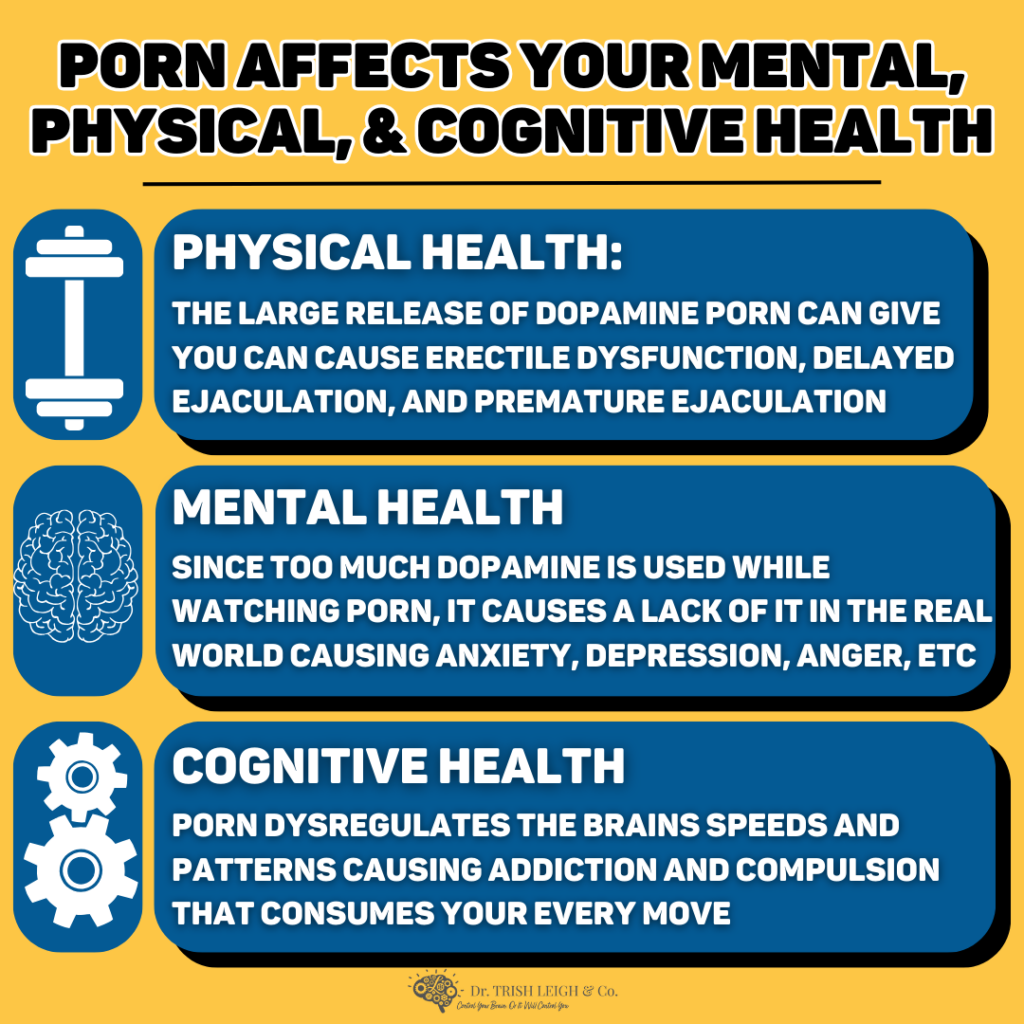How Porn Can Impact Physical, Mental, and Cognitive Health
In today’s digital age, access to explicit content is easier than ever before. It’s essential to recognize the impact it can have on overall well-being. Beyond debates on morality, emerging research suggests that porn may contribute to various health concerns, affecting not only mental health but also physical and cognitive well-being.
Physical Health:
Addiction and Rewiring the Brain:
Porn has the potential to trigger the release of dopamine, a neurotransmitter associated with pleasure and reward. Frequent exposure to explicit content may lead to the development of a dependency, akin to substance addiction. This can result in changes to the brain’s reward system, impacting one’s ability to experience pleasure from natural stimuli.
Sexual Dysfunction:
Studies suggest a connection between excessive pornography consumption and sexual dysfunction. This can manifest as difficulties in achieving or maintaining an erection, reduced libido, and challenges in forming and sustaining intimate relationships.
Mental Health:
Impact on Self-Esteem:
Consuming pornography can contribute to distorted perceptions of body image and sexuality. Individuals may compare themselves to unrealistic standards portrayed in adult content, leading to feelings of inadequacy, low self-esteem, and body dissatisfaction.
Relationship Strain:
Excessive use of pornography has been linked to relationship issues, including decreased intimacy, communication problems, and a lack of emotional connection. Unrealistic expectations formed through exposure to explicit content can create a divide between partners, leading to dissatisfaction and strained relationships.
Increased Anxiety and Depression Risk:
Research suggests a potential link between frequent porn use and increased levels of anxiety and depression. The isolation often associated with consuming explicit content in excess may exacerbate feelings of loneliness and contribute to mental health challenges.
Cognitive Health:
Impaired Concentration and Productivity:
Excessive consumption of pornography may lead to reduced focus and concentration. Constant exposure to explicit material can interfere with cognitive function, making it challenging to stay engaged in daily tasks and responsibilities.
Desensitization and Emotional Numbness:
Over time, individuals who consume explicit content regularly may become desensitized to sexual stimuli. This desensitization can extend beyond the realm of sexuality, potentially dulling emotional responsiveness in various aspects of life.

Conclusion:
While debates surrounding the ethical aspects of porn continue, it’s crucial to consider the potential impact on health. From physical dependencies and sexual dysfunction to mental health challenges and cognitive impairments, the risks associated with excessive pornography consumption should not be ignored. Recognizing the need for open discussions, increased awareness, and seeking professional help when necessary can contribute to fostering a healthier relationship with sexuality and overall well-being. As with any complex issue, finding an informed perspective is essential for individuals navigating the modern landscape of explicit content.


